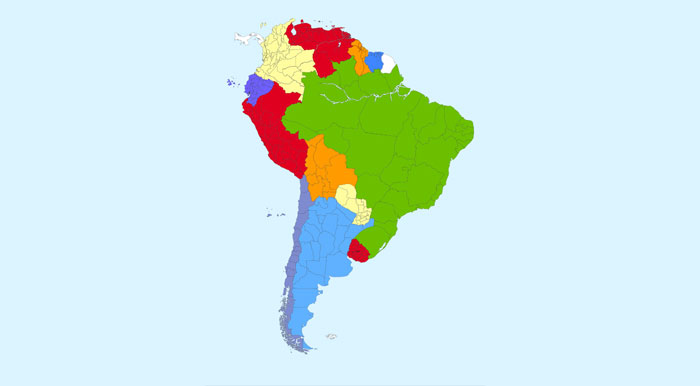 This publication examines the Union of South American Nations (UNASUR), a principal South American regional organization that is part of a new breed of multilateral mechanisms reflecting the region’s growing autonomy vis-à-vis the United States.
This publication examines the Union of South American Nations (UNASUR), a principal South American regional organization that is part of a new breed of multilateral mechanisms reflecting the region’s growing autonomy vis-à-vis the United States.
UNASUR is composed of Argentina, Bolivia, Brazil, Chile, Colombia, Ecuador, Guyana, Paraguay, Peru, Suriname, Uruguay, and Venezuela. It was created under Brazil’s leadership as a forum to provide regional solutions to regional problems. However, the multilateral project has faced the challenges brought by the need to maintain national sovereignty and self-determination, combined with the current political polarization between right- and left-wing governments.
The report identifies UNASUR’s key institutional features and provides a brief history of the organization, including an in-depth discussion of some of its key areas of engagement since 2012. It also covers UNASUR relations with other international actors including the Organization of American States and the United Nations, before concluding with an assessment of the organization’s potential for growth and improved effectiveness.
About the author
Sandra Borda is an associate professor in the Department of Political Science at the Universidad de Los Andes in Bogotá, Colombia.
About this series
This paper is part of the Mapping Multilateralism in Transition series, which features short briefing papers on established but evolving regional organizations and select crossregional organizations.
Others papers in this series
New Paper Examines Role of the Shanghai Cooperation Organization
New Report Examines Nordic Cooperation in Multilateral Diplomacy







